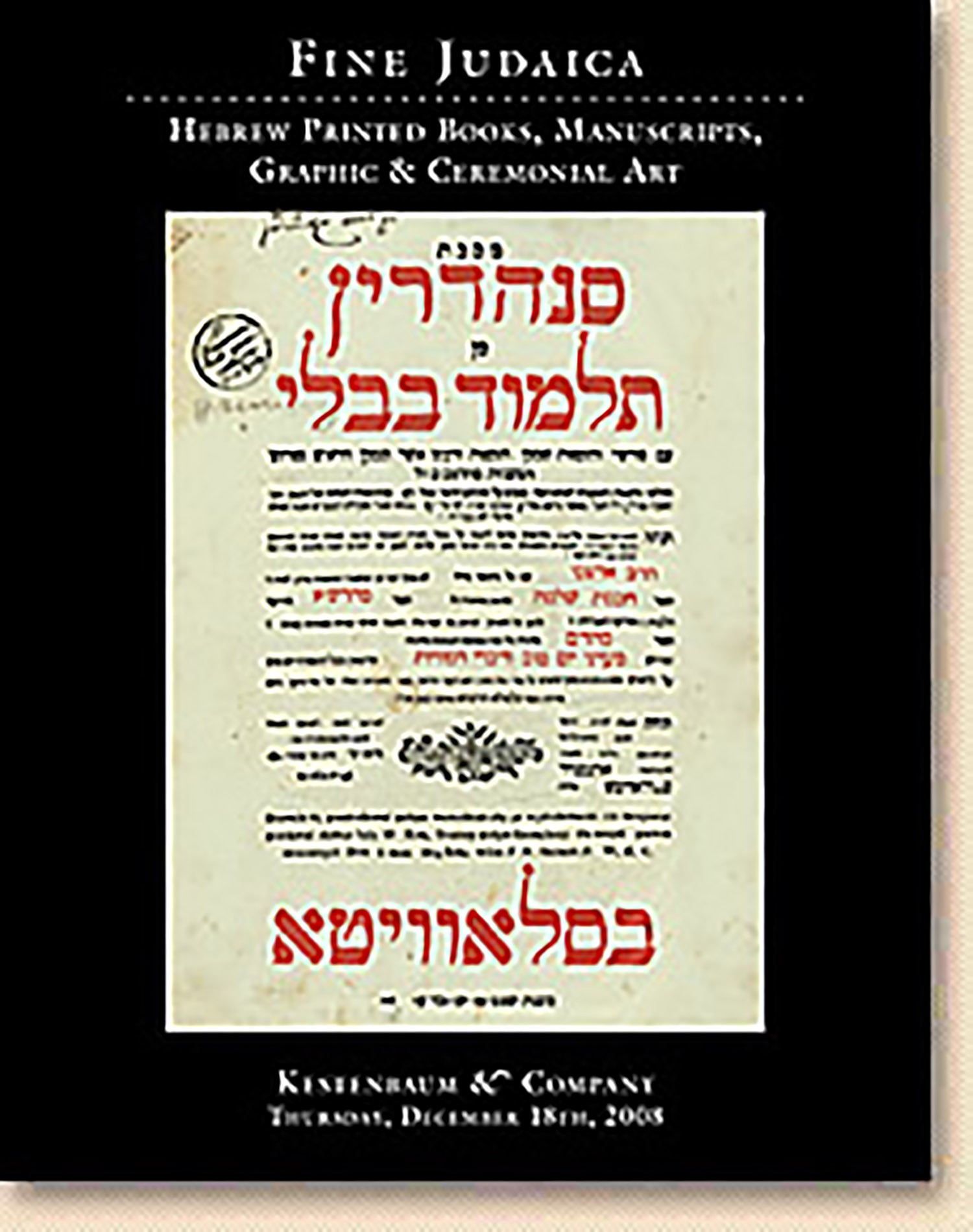Limborch, Philipp van. De Veritate Religionis Christianæ. Amica Collatio cum Erudito Judæo [“The Truth of the Christian Religion. A Friendly Discussion with an Erudite Jew.” A disputation with Isaac (Balthazar) Orobio de Castro]

AUCTION 42 |
Thursday, December 18th,
2008 at 1:00
Fine Judaica: Hebrew Printed Books, Manuscripts, Graphic & Ceremonial Art
Lot 242
(SEPHARDICA)
Limborch, Philipp van. De Veritate Religionis Christianæ. Amica Collatio cum Erudito Judæo [“The Truth of the Christian Religion. A Friendly Discussion with an Erudite Jew.” A disputation with Isaac (Balthazar) Orobio de Castro]
Gouda: Justus ab Hoeve 1687
Est: $1,000 - $1,500
Orobio (1620-87) was born in Braganza of Marrano parentage. After studying medicine and philosophy, he became a leading physician and professor of metaphysics at Salamanca. Subsequently arrested by the Inquisition and charged with secretly practicing Judaism, Orobio was tortured and incarcerated for three years before finally confessing. Upon his release he fled to France, where he became professor of pharmacy at Toulouse. In 1662 he moved to Amsterdam where he joined the Jewish community, changed his name to Isaac and practiced medicine. Orobio soon became one of the leading intellectual figures among the Spanish and Portuguese Jews newly arrived to Amsterdam, and wrote poetry and philosophical treatises in defense of Judaism.
Orobio became acquainted with the Dutch Protestant liberal preacher Philip van Limborch in Amsterdam, who, impressed by Orobio’s accounts of how the Spanish Inquisition functioned, used these accounts as the chief case history in his Latin history of the Inquisition. Limborch, however, was disturbed by Orobio’s anti-Christian arguments and the challenge of public debate in the presence of John Locke was accepted by both - the subject of the present work.
Orobio sought to defend Judaism from free-thinkers, orthodox Christians and religious liberals. His arguments against Christian theology are very close to Spinoza’s contentions against the plurality of substance. He made interesting efforts to provide a philosophical justification for Judaism in seventeenth-century terms, and in contrast to Spinoza, showed the compatibility of reason with traditional faith. See EJ, Vol. XII, cols.1475-7.
Published toward the end of Amica Collatio is “Examplar Humanae Vitae” the first appearance of Uriel da Costa’s philosophical autobiography.
